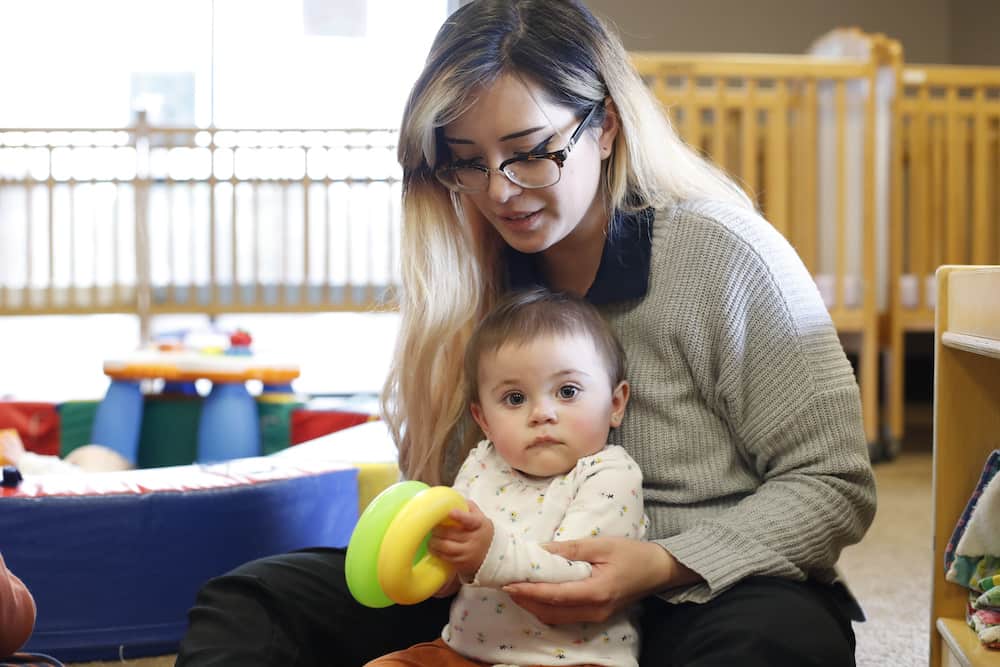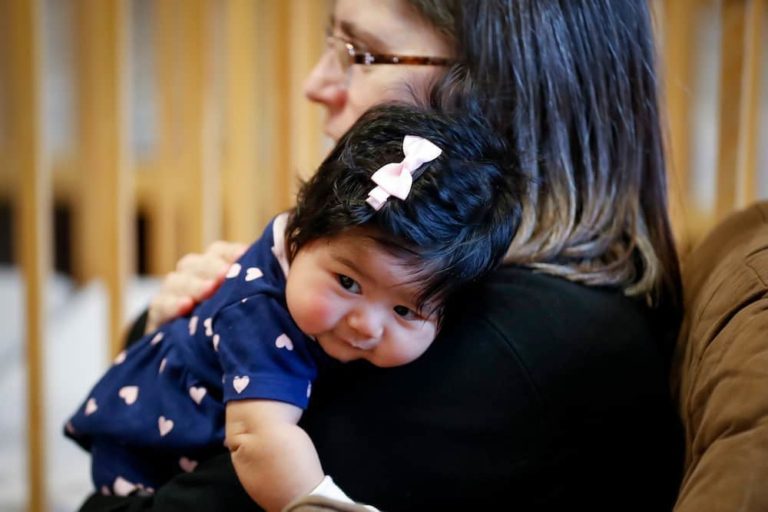Although listening to your child crying is a normal part of parenthood, it can be incredibly challenging when your baby is crying before sleeping. It can be confusing, frustrating, and downright exhausting when your baby cries when you put them down to sleep—or if the resistance begins even before you enter the bedroom. You’re likely left with questions like, “Why does my baby fight sleep? How can I get them to stop fighting sleep?”
To help you navigate the nighttime protests, we’ve compiled a list of many reasons to help you understand: why do babies fight sleep? Next, we’ll explore how to get a baby to stop fighting sleep with strategies to help you solve your sleep struggles.
Why Does My Baby Fight Sleep?
As you sit there exhausted, wondering yet again, “Why does my baby fight sleep?” you may feel at a loss for knowing what to do. But learning about the potential reasons why your baby cries when put down to sleep is the first step. If you’ve crossed off hunger, illness, and a dirty diaper, it’s time to evaluate what other factors could be at play.
Here are five common causes for bedtime battles:
Overtired
The more tired your baby is, the harder it can be to fall asleep. When your baby is past the point of no return, they may begin to act overly fussy or hard to console. Whether they had a jam-packed exhausting day or you missed the window of opportunity for them to go down, the outcome can be a fatiguing fight to overcome their sleepiness.
Undertired
Your baby’s sleep needs are continually changing—and sometimes their resistance means that they genuinely aren’t tired. If you find yourself exasperated and wondering, “Why does my baby fight sleep?” be sure to reflect on their age and development when considering what the cause could be. While it could be situational (such as today’s unusually long nap), it may also be a developmental shift in sleep patterns, such as being ready to ditch the morning nap.
Overstimulation
Bright lights, loud noises, and exciting play right before bedtime are familiar sources of overstimulation. It’s not easy for babies to calm down and mellow out after heightened sensory stimulation. Without the self-regulatory skills to realize they are tired, they may linger in the state of being wired.
Separation Anxiety
“Why does my baby fight sleep when I know they’re tired? Is it because they are sad?” This is a common question many parents ask themselves, and sometimes the answer can be yes.
Separation anxiety tends to crop up around 8–18 months old, and although it is very common and workable, it can be tough for parents. It’s not easy when your baby just wants to be with you every waking (and sleeping) moment.
Hitting a Milestone
From babbling and talking to rolling and sitting up, babies are learning new skills left and right. Some babies will experience a sleep setback when they reach a new development milestone because what better place to practice their new talents than in their own bedroom?

How to Get Your Baby to Stop Fighting Sleep
Now that we’ve explored the many reasons why babies fight sleep, you can use the process of elimination to come to a conclusion and start implementing some strategies.
Here are some tried and true techniques daycare professionals who are well-versed in the realm of how to get a baby to stop fighting sleep.
Establish a Restful Routine
Having a consistent and relaxing routine is a strategy that many daycare providers use to help babies fall asleep. Dimming the lights and playing relaxing music before bathtime or cuddly storytime are all great ways to gently guide your baby towards their sleep cycle—setting you both up for sleeping success.
Spot the Sleepy Signs
Rubbing eyes, yawning, thumb sucking, and ear pulling are all tell-tale signs that your baby is tired and ready to sleep—whether they agree with you or not. Daycare providers are trained to spot these cues and may even memorize each baby’s unique signals to determine who is ready for naptime.
If you can put your baby down within minutes of noticing one of their sleepy signs, you can hopefully avoid the overtired point of no return.
Daytime Equals Playtime
The importance of play in child development is significant, and the extent of your baby’s activities during the day can also play a role in their willingness to sleep.
Your baby is reaching a new milestone seemingly every other minute, so it’s no wonder they’re excited to test out their new skills! By providing plenty of opportunities for your baby to strengthen their skills during the day, your baby may feel less inclined to practice them at night.
High-quality daycares and preschools will provide an environment with endless opportunities for play that stimulate each baby’s senses during the day, so they are satisfied and ready to retire when the sun goes down.
Associating the sunlight and daytime with activity and playtime can also help your baby develop a natural sleep cycle. Studies show that exposure to sunlight during the day and darkness at night supports babies in establishing their circadian rhythm. Many daycares will use blackout curtains to mimic the night’s darkness for naptime during the day, which is easy to implement at home.
By guiding your baby to understand that the light of day means it’s time to play, they will naturally associate the darkness of night with the time to sleep tight!
Celebrate Your Child’s Individuality at Cadence Education
While there are many tactics to try at home, listening to your baby crying before sleeping can be challenging as a parent. For many, a simple shift in schedule or environment can do the trick.
A quality childcare program like Cadence Education offers many families just that—the peace of mind knowing that their baby is in an environment with qualified professionals who know the ins and outs of sleeping babies. Whether your baby cries when put down to sleep or could simply benefit from some social stimulation outside of home, Cadence Education is equipped with all the tools to support your family.
As one of the top childcare providers in the nation for the last twenty years, Cadence facilities provide high-quality programs for every child to feel safe and secure in their home away from home.
Find a facility near you to learn how you and your family can engage, grow, and thrive with your local Cadence community.




